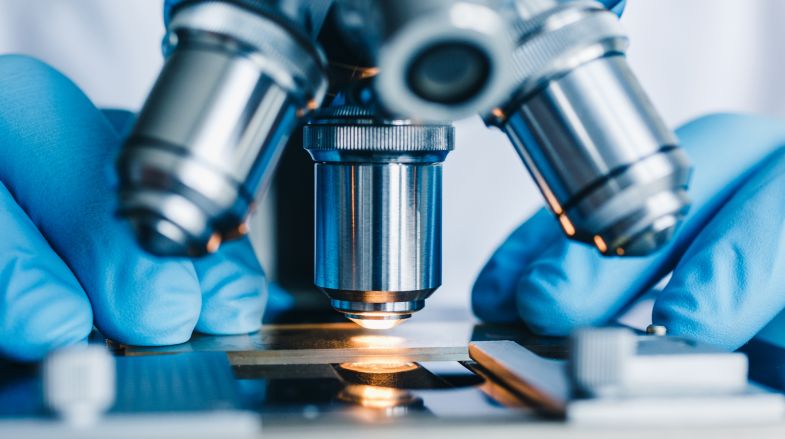
By developing precision treatments, researchers at the University of Glasgow aim to increase survival rates and enhance the quality of life for cancer patients.
The COVID-19 pandemic has forced many medical researchers and healthcare specialists to shift their priorities. However, cancer hasn’t stopped in the meantime – and experts estimate that thousands of people may have experienced delays in diagnosis and treatment due to the pandemic.
The University of Glasgow is a centre of excellence for cancer sciences, and its researchers are revolutionising our understanding of cancer. Professor Laura Machesky is Head of the University’s School of Cancer Sciences (SCS). Together with Professor Owen Sansom, director of the Beatson Institute for Cancer Research, multiple teams study the growth and spread of cancers in mouse models, which closely mirror the pathology of the human disease. Professor Machesky explains: “We can position cancer models that align closely with human disease and trial higher-risk novel treatments in mice. Human cell-based models and novel imaging methods are also crucial to our research.”
We are seeing a global surge in opportunities to exploit the immune system to eradicate cancer cells, according to Professor Jeff Evans, medical oncologist and clinical lead at the SCS and the Glasgow Experimental Cancer Medicine Centre. “The potential of cellular therapies in blood cancers and in solid tumours is especially exciting,” he says.
However, established therapies such as surgery, radiotherapy and chemotherapy remain important pillars of cancer treatments. “It’s not always about developing novel therapies, but also how we refine the use of existing therapies to optimise patient selection and find optimal combinations of therapy,” Professor Evans explains. Clinical trials have made significant progress in this regard, for example, to show the effectiveness of shorter treatment duration following potentially curative resection of bowel cancer.
However, the SCS has faced additional challenges because of the COVID-19 crisis, and Professors Evans and Machesky have spoken of the long-term impact on cancer research. Early in the pandemic, recruitment of patients to clinical trials was paused. “We are dependent on a wide range of multi-disciplinary teams of clinicians, nurses, pharmacists, ancillary healthcare workers and trial coordinators to support clinical trials,” Professor Evans says. Most clinical trials have re-opened, but there remains a concern that new trials may still face delays.
Funding for research has also taken a hit, pushing some projects to “the point of crisis”, according to Professor Machesky. This is where the University of Glasgow stepped in. “They’ve been very proactive, identifying Covid-related relief money and topping up funding to sustain research,” she says. “At a time of severe cuts elsewhere, our early career researchers are so important, and we have prioritised supporting them.”
“It’s a really exciting time for cancer science,” Professor Evans says. “We hope that we can use this to make a real difference to the lives of cancer patients.”















